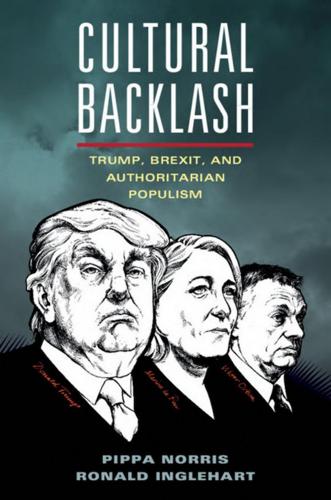
Cultural Backlash: Trump, Brexit, and Authoritarian Populism
by
Pippa Norris
and
Ronald Inglehart
Published 31 Dec 2018
Economic grievances seem to help drive support for populist parties – but they may also have indirect effects, exacerbating anxieties about the migrants and refugees flooding into Europe and the perceived job losses, crime, concern about overloaded welfare services, and fears of terrorism – all of which will be explored in the next chapter.85 Socially disadvantaged groups, Betz argues, are most prone to blame ethnic minorities and migrant populations for deteriorating conditions, loss of manufacturing jobs, and inadequate welfare services.86 Consequently, we need to explore the impact of global migration flows, growing racial and ethnic diversity, and the perceived risks of terrorist threats, which could also help explain the cultural backlash we are witnessing. Notes 1. Lorenza Antonucci, Laszlo Horvath, Yordan Kutiyski, and Andre Krouwel. 2017. ‘The malaise of the squeezed middle: Challenging the narrative of the “left behind” Brexiter.’ Competition and Change 21 (3): 211–229. 2. Veronica Fagerland Kroknes, Tor Georg Jakobsen, and Lisa-Marie Grønning. 2016. ‘Economic performance and political trust: The impact of the financial crisis on European citizens.’ European Societies 17 (5): 700–723. 3.
…
MIT Working Paper. https://economics.mit.edu/files/12418. 9. https://unstats.un.org/sdgs/files/report/2017/ TheSustainableDevelopmentGoalsReport2017.pdf. 10. Sara Hobolt. 2016. ‘The Brexit vote: A divided nation, a divided continent.’ Journal of European Public Policy 23 (9): 1259–1277. See, however, Lorenza Antonucci, Laszlo Horvath, Yordan Kutiyski, and Andre Krouwel. 2017. ‘The malaise of the squeezed middle: Challenging the narrative of the “left behind” Brexiter.’ Competition and Change 21 (3): 211–229. 11. Hanspeter Kriesi, Edgar Grande, Romain Lachat, Martin Dolezal, Simon Bornschier, and Timotheos Frey. 2006. ‘Globalization and the transformation of the national political space: Six European countries compared.’
…
The results demonstrated deep divisions between the Leave areas of the UK – economically disadvantaged communities with many older, less educated, white voters, in the Midlands, the North East, Yorkshire and Humber, and Eastern England – versus the Remain territories of Scotland, metropolitan London, and Northern Ireland.26 Some scholars concluded that the mainstream parties, especially the Labour Party under Tony Blair, Gordon Brown, and Jeremy Corbyn, offered policies that failed to appeal to their base; British political elites shared similar values endorsing social liberalism, multiculturalism, and EU membership, but working- class voters and older social conservatives held values that reflected a more authoritarian, xenophobic, and nativist response to immigration and EU membership.27 But others challenge this claim, citing evidence that it was the ‘squeezed middle’ or intermediary class who reported financial decline and who voted Leave, not the working class.28 The June 8, 2017 UK General Elections Brexit was followed by a surge in support for the Conservative Party under Theresa May’s leadership (see Figure 11.1). Leaving the European Union was adopted as official Conservative Party policy as the new Prime Minister pledged to negotiate Britain’s exit from the EU, with the Home Office implementing stricter control of immigration numbers.
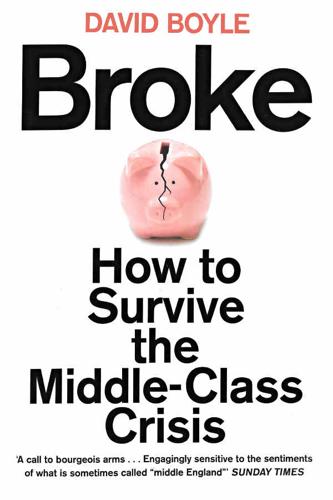
Broke: How to Survive the Middle Class Crisis
by
David Boyle
Published 15 Jan 2014
’[6] Shona Sibary used the same word describing the plight of her family when they had their home repossessed. As Deborah Lane implied, this feeling of being ‘stuck’ emerged before the banking crisis and the downturn. When the Department of Work and Pensions began investigating the so-called ‘squeezed middle’ in 2006, it found that — even then — a quarter of middle-income earners could not afford a week’s family holiday. Six per cent of them couldn’t afford to send children swimming once a month. According to the TUC, the same proportion of middle-income people were worried about their jobs as were the very lowest earners.
…
‘It is as if your parents die leaving a treasure chest,’ wrote Willetts, ‘and, when you open it, you discover a pile of IOUs which you are obliged to pay.’[21] But there is something else going on here which affects the middle classes, however you define them, in many developed countries. Middle incomes in the USA and Canada have flatlined for three decades now. Even in Germany, real monthly incomes have been falling. In fact, the term ‘squeezed middle’ came originally from the United States, where the term ‘middle class’ is usually used to mean what it says — those on average incomes — rather than the extra superstructure of values and social aspirations that the term has come to stand for in the UK. There certainly is a middle-class problem in the USA, where 4 million families are believed to be in danger of sliding into poverty and one in four middle-class households are about to drop down onto the lower rung, spending a quarter of their incomes just servicing debt.[22] It is different over there, but there are important parallels between the UK and USA, which is why the Labour leader Ed Miliband borrowed the American phrase ‘squeezed middle’ in 2011.
…
There certainly is a middle-class problem in the USA, where 4 million families are believed to be in danger of sliding into poverty and one in four middle-class households are about to drop down onto the lower rung, spending a quarter of their incomes just servicing debt.[22] It is different over there, but there are important parallels between the UK and USA, which is why the Labour leader Ed Miliband borrowed the American phrase ‘squeezed middle’ in 2011. The parallel has also been noticed by one of the most important commentators on world affairs. Francis Fukuyama is busily charting the decline of the middle classes in all developed nations. Into the misty past, the middle classes have benefited from rising above the undifferentiated masses, Fukuyama implies.
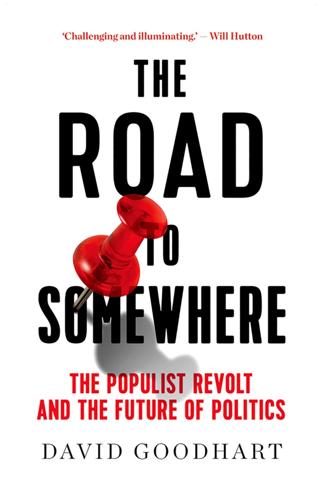
The Road to Somewhere: The Populist Revolt and the Future of Politics
by
David Goodhart
Published 7 Jan 2017
But these un-radical general election results seem to have disguised a more disaffected public mood and reduced trust in ‘the system’—exacerbated by the MPs expenses scandal of 2009—that came to be expressed in support for UKIP and the Brexit vote. The disaffection was already there, prior to the crash, in many parts of the country—especially the former industrial Labour strongholds that never recovered from 1980s de-industrialisation—and has burst out sporadically after 2008. It was also to be found in the so-called ‘squeezed middle’—a phrase coined by the Resolution Foundation think tank in 2010—the large group who have not made it into the security of the professional class but have not dropped as low as the more persistently ‘left behind’ groups such as the working poor and people with few qualifications in the former industrial areas.
…
The income gap between all social classes has narrowed but those in the middle of the income spectrum have experienced the tightest squeeze with the middle fifth of households now closer to the bottom fifth than the top fifth—twenty years ago more than two thirds owned their own home and less than a quarter of their income came from benefits, now only half own their home and almost a third of their income comes from tax credits and benefits.39 (Moreover, overall asset inequality has continued to rise sharply thanks in part to the rising value of housing assets and the lottery of where in the country you happen to live.) The closing of the gap between poorer households and middling households—part of this squeezed middle story—is partly the result of more people from poorer households finding mainly low paid work, which is itself partly the result of tougher sanctions on benefit claimants. This means that more than half of the poor are in work, but it also means that the proportion of children living in a workless household fell from 20 per cent in 1994 to 12 per cent in 2015.40 The number of poor households—classified as those below 60 per cent of national median income (about £280 a week for a childless couple today)—has fallen from a high point of just over 25 per cent in the mid-1990s to 21 per cent today (both after housing costs).41 For more than twenty years the overriding aim of labour market policy has been to get people into jobs—with the carrot of in-work tax credits and the stick of squeezing benefits.
…
.: product lines of, 86 Appiah, Kwame Anthony: 117 assortative mating: 188 Aston University: 164 austerity: 98, 200 Australia: 4, 160 Austria: 56, 69–70 authoritarianism: 8, 12, 30, 33, 44, 57; concept of, 57; hard, 45 Baggini, Julian: observations of British class system, 59 Bangladesh: 130 Bank of England: personnel of, 86 Bartels, Larry: Democracy for Realists, 61 Bartlett, Jamie: Radicals, 64 Basel Accords: 85 BASF: 176 Bayer: 176 Belgium: 73, 75, 101; Brussels, 53, 89, 93, 95, 98 Berlusconi, Silvio: 65 birther movement: 68 Bischof, Bob: head of German-British Forum, 174 Blair, Tony: 10, 76, 159, 189; administration of, 218; foreign policy of, 96; speeches of, 3, 7, 49; support for Bulgarian and Romanian EU accession, 26; unravelling of legacy, 221 Bloomsbury Group: 34 Bogdanor, Vernon: concept of ‘exam-passing classes’, 3 Boyle, Danny: Summer Olympics opening ceremony (2012), 111, 222 Branson, Richard: 11 Brexit (EU Referendum)(2016): 1–2, 19, 27, 81, 89, 93, 99–100, 125, 233; negotiations, 103; polling prior to voting, 30, 64; Remainers, 2, 19–20, 52–3, 132; sociological implications of, 4–7, 13, 53–4, 118, 126, 167–8, 225; Stronger In campaign, 61; Vote Leave campaign, 42, 53, 72, 91, 132; voting pattern in, 7–9, 19–20, 23, 26, 36, 52, 55–6, 60, 71, 74, 215, 218 British Broadcasting Corporation (BBC): 112, 145; Newsnight, 60; personnel of, 15; Radio 4, 31, 227; Today, 60 British Empire: 107 British National Party: European election performance of (2009), 119; supporters of, 38 British Future: 19 British Private Equity and Venture Capital Association: personnel of, 135 British Social Attitudes (BSA) surveys: 153; authoritarian-libertarian scale, 44–5; findings of, 38–9, 44, 106–7, 120, 202, 206–7, 218; immigration survey (2013), 44; personnel of, 218–19 British Values Survey: establishment of (1973), 43; groups in, 43 Brooks, Greg: Sheffield report, 155 Brown, Belinda: 205, 207–8 Brown, Gordon: 106; abolition of Married Couples Allowance, 204; budget of (2006), 147–8; political rhetoric of, 16–17 Brummer, Alex: Britain for Sale, 173 Bulgaria: 26; accession to EU, 225 (2007); migrants from, 126; population levels of, 102 Burgess, Simon: 131 Burggraf, Shirley: Feminine Economy and Economic Man, The, 194 Cahn, Andrew: 98 Callaghan, Jim: Ruskin College speech (1976), 154 Callan, Eamonn: 191 Callan, Samantha: 202, 212 Cambridge University: 35, 179, 186; faculty of, 37; students of, 158–9 Cameron, David: 71, 103, 179, 183, 189; administration of, 226; cabinet of, 187 Canada: 160; mass immigration in, 119 capital: 9, 100; cultural, 190; human, 34; liberalisation of controls, 97; social, 110 capitalism: 7, 11; organised, 159 Care (Christian Action Research & Education): 203 Carswell, Douglas: 13 Case, Anne: 67 Casey, Louise: review of opportunity and integration, 129 Catholicism: 15, 213; original sin, 57 Cautres, Bruno: 72 Center for Humans and Nature: 30 Centre for Social Justice: 206; personnel of, 202 chauvinism: 33; decline in prevalence of, 39; violent, 106 China, People’s Republic of: 10, 95, 104, 160; accession to WTO (2001), 88; manufacturing sector of, 86; steel industry of, 87 Chirac, Jacques: electoral victory of (2002), 49 Christianity: 33, 69, 83, 156 citizenship: 68, 121–2; democratic, 7; global, 114; legislation, 103; national, 5; relationship with migration, 126; shared, 113; temporary, 126 Clarke, Charles: British Home Secretary, 84 Clarke, Ken: education reforms of, 158–9 Clegg, Nick: 11, 13, 189 Cliffe, Jeremy: 10–11; ‘Britain’s Cosmopolitan Future’ 216; observations of social conservatism, 217 Clinton, Bill: 29, 76; administration of, 218 Clinton, Hillary: electoral defeat of (2016), 67–8 Coalition Government (UK) (2010–16): 13, 54, 226; cabinet members of, 16; immigration policies of, 124–5 Cold War: end of, 83, 92, 95, 98 Collier, Paul: 110; view of potential reform of UNHCR, 84 colonialism: 87; European, 105 communism: 58 Communist Party of France: 72 Confederation of British Industry (CBI): 164 confirmation bias: concept of, 30 Conservative Party (Tories)(UK): 19, 207; dismantling of apprenticeship system by, 157; ideology of, 76, 196; members of, 31, 164, 187; Party Conference (2016), 226; Red Toryism, 63; supporters of, 24, 35, 77, 143, 216–17 conservatism: 4, 9; cultural, 58; social, 217; Somewhere, 7–8; working-class, 8 Corbyn, Jeremy: elected as leader of Labour Party, 20, 53, 59, 75, 78 Cowley, Philip: 35 Crosland, Tony: Secretary of Education, 36; two-tier higher education system proposed by, 158 Crossrail 2: 228; spending on, 143 Czech Republic: 69, 73 D66: supporters of, 76 Dade, Pat: 43–4, 219; role in establishment of British Values Survey, 43, 218–19 Daily Mail: 227; reader base of, 4 Danish Peoples’ Party: 55, 69–70, 73; ideology of, 73 Darwin, Charles: 28 death penalty: 44; support for, 39, 216–17 Deaton, Angus: 67 deference, end of: 63 Delors, Jacques: 96, 103–4; President of European Commission, 94 Democratic Party: ideology of, 62, 65; shortcomings of engagement strategies of, 66–7 Demos: 137 Dench, Geoff: 207; concept of ‘quality with pluralism’, 214; Transforming Men, 209 Denmark: 69, 71, 99; education levels in, 156 Diana, Princess of Wales: death of (1997), 107 double liberalism: 1, 11, 63 Duffy, Gillian: 124 Dyson: 173; Dyson effect, 173 Economist: 10, 210, 216 Eden, Anthony: administration of, 187 Eichengreen, Barry: 91 Elias, Norbert: 119 Employer Skills Survey: 163 Engineering Employers Federation: 166 Englishness: 111 Erdogan, Recep Tayyip: 218 Essex Man/Woman: 186 Estonia: population levels of, 102 Eton College: 179, 187 Euro (currency): 100–1; accession of countries to, 98–9 European Commission: 26, 97 European Convention on Human Rights: 83–4 European Court of Justice (ECJ): 103 European Economic Community (EEC): 92; British accession to (1973), 93; Treaty of Rome (1957), 101 European Exchange Rate Mechanism (ERM): 97–8 European Parliament: elections (2009), 71–2; elections (2014), 72 European Union (EU): 10, 25, 53, 76, 89, 92–4, 99–100, 120, 124, 160, 215, 221–2, 229, 233; Amsterdam Treaty (1997), 94; Common Agricultural Policy, 92, 96; establishment of (1957), 91–2; freedom of movement principles, 100–1, 163–4; Humanitarian Protection Directive (2004), 83; integration, 50, 98–9, 173; Lisbon Treaty (2009), 94; Maastricht Treaty (1992), 94, 96, 103; members states of, 16, 31, 55, 71, 216; personnel of, 128; Schengen Agreement (1985), 94–5, 99, 117; Single European Act (1986), 94; Treaty of Nice (2000), 94 Euroscepticism: 69 Eurozone Crisis (2008–): 92, 99 Evening Standard: 143–5 Facebook: 86 family culture: 196–7; childcare, 202–3; cohabitation, 196, 211; divorce figures, 196–7; gender roles, 206–13; legislation impacting, 195–6; lone parents, 196; married couples tax allowance, 225; relationship with state intrusion, 200–2; tax burdens, 203–4; tax credit systems, 202, 204–5, 225 Farage, Nigel: 11; leader of UKIP, 72; political rhetoric of, 20 Fawcett Society: surveys conducted by, 195–6 federalism: 69 feminism: 185, 199, 205; gender pay gap, 198–9; orthodox, 194 Fidesz: 69, 71, 73 Fillon, François: 73 Financial Times: 91, 108, 115, 138, 145, 147 Finkelstein, Daniel: 34 Five Star Movement: 53, 55, 64, 70, 73 Florida, Richard: concept of ‘Creative Class’, 136 Foges, Clare: 183 food sector: 17, 102, 125, 126 Ford, Robert: 35, 150 foreign ownership: 172–74, 230 Fortuyn, Pim: assassination of (2002), 50, 69 France: 69, 75, 94–6, 101, 173; agricultural sector of, 96; compulsory insurance system of, 222; Paris, 104, 143; high-skill/low-skill job disappearance in, 151; Revolution (1789–99), 106 Frank, Thomas: concept of ‘liberalism of the rich’, 62 Franzen, Jonathan: 110 free trade agreements: opposition to, 62 Freedom Party: 69; electoral defeat of (2016), 70; ideology of, 73; supporters of, 70 French Colonial Empire (1534–1980): 107 Friedman, Sam: ‘Introducing the Class Ceiling: Social Mobility and Britain’s Elite Occupations’, 187 Friedman, Thomas: World is Flat, The, 85 Front National (FN): 53, 69, 72–3; European electoral performance of (2014), 72; founding of (1973), 72; supporters of, 72 Gallup: polls conducted by, 65 Ganesh, Janan: 115, 145 gay marriage: 5, 76; opposition to, 46–7; support for, 26, 220 General Electric Company (GEC) plc: 172, 175 German-British Forum: members of, 174 Germany: 70, 73, 86, 94, 96, 100–1, 173–4, 209; automobile industry of, 96; chemical industry of, 176; compulsory insurance system of, 222; education sector of, 166; high-skill/low-skill job disappearance in, 151; labour market of, 147; Leipzig, 58; Ludwigshafen, 176; Reunification (1990), 96, 147, 176; Ruhr, 176–7 Ghemawat, Prof Pankaj: 85–6 Gilens, Martin: study of American public policy and public preferences, 61–2 Glasman, Maurice: 227 Global Financial Crisis (2007–9): 56, 169–70, 177; Credit Crunch (2007–8), 98, 177 Global Villagers: 31–2, 44–5, 160, 226; characteristics of, 46; political representation of, 75; political views of, 109, 112 globalisation: 9–10, 50–2, 81–2, 85, 87–8, 90–1, 105–6, 148; economic, 9; global trade development, 86–7; growth of, 85–6; hyperglobalisation, 88–9; relationship with nation states, 85–6; sane, 90 Golden Dawn: 74; growth of, 105 Goldman Sachs: personnel of, 31 Goldthorpe, John: 184–5, 189–90 Goodhart, David: 12 Goodwin, Fred: 168 Goodwin, Matthew: 150 Gordon, Ian: 137–8, 140 Gould, Philip: 220 Gove, Michael: 64, 91 great liberalisation: 39–40, 47; effect of, 40 Greater London Authority (GLA): 143 Greece: 53, 56, 69, 74, 99, 105; Athens, 143; government of, 98 Green, Francis: 163 Green Party (UK): supporters of, 38 Group of Twenty (G20): 89 Guardian: 14, 210 Habsburg Empire (Austro-Hungarian Empire): collapse of (1918), 107 Haidt, Jonathan: 11, 30, 33, 133; Righteous Mind, The, 28–9 Hakim, Catharine: 205 Hall, Stuart: 14–15 Hames, Tim: 135–6 Hampstead/Hartlepool alliance: 75 Hanson Trust: subsidiaries of, 175 Hard Authoritarian: 43–7, 51, 119, 220; characteristics of, 24–5; political views of, 109 Harris, Gareth: 137; ‘Changing Places’, 137 Harvard University: faculty of, 57 Heath, Edward: foreign policy of, 96 Higgins, Les: role in establishment of British Values Survey, 43 High Speed 2 (HS2): 228 High Speed 3 (HS3): aims of, 151, 228 Hitler, Adolf: 94 Hoescht: 176 Hofstadter, Richard: ‘Everyone is Talking About Populism, But No One Can Define It’ (1967), 54 Holmes, Chris: 151 homophobia: observations in BSA surveys, 39; societal views of, 39–40, 216 Honig, Bonnie: concept of ‘objects of public love’, 111 Huguenots: 121 Huhne, Chris: 16, 32 human rights: 5, 10, 55, 113; courts, 113; legislation, 5, 83–4, 109, 112; rhetoric, 112–13 Hungary: 53, 64, 69, 71, 73–4, 99, 218; Budapest, 218 Ignatieff, Michael: leader of Liberal Party (Canada), 13 Imperial Chemical Industries (ICI): 172, 174–5; personnel of, 169; subsidiaries of, 175 Inbetweeners: 4, 25, 46, 109; political views of, 109 India: 104 Inglehart, Ronald: theories of value change, 27 Insider Nation: concept of, 61, 64; evidence of, 61–2 Institute for Fiscal Studies (IFS): 201; findings of, 211–12 International Monetary Fund (IMF): 86–7, 102 interracial marriage: societal views of, 40 India: 10, 160 Ipsos MORI: polls conducted by, 42, 122 Iraq: 84; Operation Iraqi Freedom (2003–11), 82 Islam: 50; Ahmadiyya, 84; conservative, 131; Halal, 68; hostility to, 73; Qur’an, 50 Islamism: 130 Islamophobia: 130 Italy: 55, 64, 69–70, 73, 96; migrants from, 125 Jamaica: 14 Japan: 86; request for League of Nations racial equality protocol (1919), 109 Jews/Judaism: 121, 259; orthodox, 131; persecution of, 17 jingoism: 8 Jobbik: 53, 64, 74 Johnson, Boris: 145 Jones, Sir John Harvey: death of (2008), 169 Jordan, Hashemite Kingdom of: government of, 84 Jospin, Lionel: defeat in final round of French presidential elections (2002), 49 Judah, Ben: This is London: Life and Death in the World City, 145 Kaufmann, Eric: 8–9, 131, 219, 227; ‘Changing Places’, 137 Kellner, Peter: 78 King, Mervyn: Governor of Bank of England, 86 Kinnock, Neil: 98 knowledge economy: 147, 149, 154, 166, 221 Kohl, Helmut: 94 Kotleba: 74 Krastev, Ivan: 55, 65, 82–3 labour: 9, 89–90, 149; eastern European, 125–6; gender division of, 197; hourglass labour market, 150, 191; living wage, 26, 152; market, 95, 101–2, 124, 140, 147–8, 150–2, 156–7, 181, 225 Labour Party (Denmark): 77 Labour Party (Netherlands): 50; supporters of, 76 Labour Party (UK): 2, 23, 53, 57, 72, 123, 157, 159, 207; Blue Labour, 63; electoral performance of (2015), 75; European election performance (2014), 72; expansion of welfare state under, 199–200; members of, 14, 20, 36, 59, 61, 77–8, 84; Momentum, 53; New Labour, 33, 75, 107, 123, 155, 159, 167, 196, 207, 220, 226, 232; Party Conference (2005), 7; social media presence of, 79; supporters of, 17, 35, 75, 77, 143, 221; voting patterns in Brexit vote, 19 Lakner, Christoph: concept of elephant curve, 87 Lamy, Pascal: 97 Latvia: adoption of Euro, 98–9; migrants from, 25–6 Laurison, Daniel: ‘Introducing the Class Ceiling: Social Mobility and Britain’s Elite Occupations’, 187 Law and Justice Party: 69, 71, 73 Lawson, Nigel: 205 Le Pen, Jean-Marie: victory in final round of French presidential elections (2002), 49, 69 Le Pen, Marine: 53; electoral strategies of, 73 Leadbeater, Charles: 53 League of Nations: protocols of, 109 left-behinders: 20 Lega Nord: 69 Levin, Yuval: Fractured Republic, The, 232 liberal democracy: 2, 31, 55 Liberal Democrats: 23, 53–4; members of, 16; supporters of, 38, 78 Liberal Party (Canada): members of, 13 liberalism: 4–5, 12–13, 29–31, 55, 76, 119, 127–8, 199, 233; Anywhere, 27–8; baby boomer, 6; double, 1, 63; economic, 11; graduate, 216–17; meritocratic, 34; metropolitan, 216; orthodox, 13–14; Pioneer, 44; social, 4, 11 libertarianism: 8, 11, 22, 39, 44 Libya: 84; Civil War (2011), 225 Lilla, Mark: 35 Lind, Michael: 105, 135 Livingstone, Ken: 136 Lloyd, John: 56 London School of Economics (LSE): 54, 137–8, 140, 183 Low Pay Commission: findings of, 170 Lucas Industries plc: 172 male breadwinner: 149, 194, 195, 198, 206, 207 Manchester University: faculty of, 131 Mandelson, Peter: British Home Secretary, 61; family of, 61 Mandler, Peter: 135 Marr, Andrew: 53, 181 Marshall Plan (1948): 92 mass immigration: 14, 55, 104–5, 118–19, 121–4, 126–7, 140, 228–9; accompanied infrastructure development, 137–9; brain-drain issue, 102; debate of issue, 81–2; freedom of movement debates, 100–3; housing levels issue, 138–9; impact on wages, 152; integration, 129–32, 140–2; non-EU, 124–5; opposition to, 16–17, 120, 220 May, Theresa: 63, 179, 183, 198–9; administration of, 173, 176, 187, 191, 230; British Home Secretary, 124–5; ‘Citizens of Nowhere’ speech (2016), 31; political rhetoric of, 15, 31, 226 McCain, John: electoral defeat of (2008), 68 meritocracy: 152, 179–80, 190; critiques of, 180–1; perceptions of, 182–3 Merkel, Angela: reaction to refugee crisis (2015), 71 Mexico: borders of, 21 migration flows: global rates, 82, 87; non-refugee, 82 Milanovic, Branko: 126; concept of elephant curve, 87 Miliband, Ed: 78, 189 Mill, John Stuart: ‘harm principle’ of, 11–12 Millennium Cohort Study: 159 Miller, David: concept of ‘weak cosmopolitanism’, 109 Mills, Colin: 185 Mitterand, François: 94, 97 mobility: 8, 11, 20, 23, 36, 37, 38, 153, 167, 219; capital: 86, 88; geographical, 4, 6; social, 6, 33, 58, 152, 168, 179, 180, 182, 183–191, 213, 215, 220, 226, 231 Moderate Party: members of, 70 Monnet, Jean: 94–5, 97, 103–4 Morgan Stanley: 171 Mudde, Cas: observations of populism, 57 multiculturalism: 14, 50, 141–2; conceptualisation of, 106; laissez-faire, 132 narodniki: 54 national identity: 14, 38, 41, 111–12; conceptualisations of, 45; indifference to, 41, 46, 106, 114; polling on, 41 nationalism: 38, 46–7, 105; chauvinistic, 107, 120; civic, 23, 53; extreme, 104; moderate, 228; modern, 112; post-, 8, 105–6, 112; Scottish, 221 nativism: 57 Neave, Guy: 36 net migration: 126; White British, 136 Netherlands: 13–14, 50, 69, 73, 75, 99–100; Amsterdam, 49, 51; immigrant/minority population of, 50–1; Moroccan population of, 50–1 Netmums: surveys conducted by, 205–6 New Culture Forum: members of, 144 New Jerusalem: 105 New Society/Opinion Research Centre: polling conducted by, 33 New Zealand: 160 Nextdoor: 114 non-governmental organizations (NGOs): 21; refugee, 82 Norris, Pippa: 57 North American Free Trade Agreement (NAFTA): 91; opposition to, 62 North Atlantic Treaty Organization (NATO): 85, 92; personnel of, 84 Norway: 69 Nuttall, Paul: leader of UKIP, 72; Obama, Barack: 67; approval ratings of, 60; electoral victory of (2012), 68; healthcare policies of, 22–3; target of birther movement, 68 O’Donnell, Gus: background of, 15–16; British Cabinet Secretary, 15 O’Leary, Duncan: 232 Open University: Centre for Research on Socio-Cultural Change (CRESC), 172–3 Operation Iraqi Freedom (2003–11): political impact of, 56 Orbán, Victor: 69, 218 Organisation for Economic Co-operation and Development (OECD): 201, 204; report on education levels (2016), 155–6; start-ups ranking, 173 Orwell, George: Nineteen Eighty-Four, 108–9 Osborne, George: 189; economic policies of, 4, 226 Oswald, Andrew: 171 Ottoman Empire: collapse of (1923), 107 outsider nation: concept of, 61, 64 Owen, David: 99 Oxford University: 15, 35, 179, 186; Centre on Skills, Knowledge and Organisational Performance, 151; faculty of, 31, 151; Nuffield College, 32 Pakistan: persecution of Ahmadiyya Muslims in, 84 Parris, Matthew: 115 Parsons, Talcott: concept of ‘achieved’ identities, 115 Party of Freedom (PVV): 69; ideology of, 73; supporters of, 50, 76 Paxman, Jeremy: 42 Pearson: ownership of Higher National Certificates (HNCs)/Higher National Diplomas (HNDs), 157 Pegida: ideology of, 73 Pessoa, Joao Paulo: 88 Phalange: 74 Phillips, Trevor: 133 Pioneers: characteristics of, 43–4 Plaid Cymru: supporters of, 38 Podemos: 53, 64 Poland: 56, 69, 73; migrants from, 25–6, 121 Policy Exchange: ‘Bittersweet Success’, 188 political elites: media representation of, 63–4 populism: 1, 5, 13–14, 49–52, 55–6, 60, 64, 67, 69–74, 81; American, 54, 65; British, 63; decent, 6, 55, 71, 73, 219–20, 222, 227, 233; definitions of, 54; European, 49, 53, 65, 68–9, 74; left-wing, 54, 56; opposition to, 74; right-wing, 33, 51, 54 Populists: 54 Portillo, Michael: 31 Portugal: migrants from, 121, 125 post-industrialism: 6 post-nationalism: 105 poverty: 83, 168; child, 183–4, 200, 204; extreme, 87; reduction of, 78, 200; wages, 231 Powell, Enoch: ‘Rivers of Blood’ speech (1968), 127 Professionalisation of politics: 59 Progress Party: 69 progressive individualism: 5 Progressive Party: founding of (1912), 54 proportional representation: support for, 228 Prospect: 14, 91, 136 Prospectors: characteristics of, 43 Protestantism: 8, 213 Putin, Vladimir: 218 Putnam, Robert: 22; theory of social capital, 110 racism: 32, 73–4, 134; observations in BSA surveys, 39; societal views of, 39; violent, 127 Rashid, Sammy: Sheffield report, 155 Reagan, Ronald: 58, 63; approval ratings of, 60 Recchi, Ettore: 104 Refugee Crisis (2015–): 83–4; charitable efforts targeting, 21–2; government funds provided to aid, 83; political reactions to, 71 Relationships Foundation: 202 Republic of Ireland: 99; high-skill/low-skill job disappearance in, 151; property bubble in, 98 Republican Party: ideology of, 62, 65; members of, 68 Resolution Foundation: 87–8; concept of ‘squeezed middle’, 168–9; reports of, 171 Ricardo, David: trade theory of, 101 Robinson, Eric: 36 Rodrik, Dani: 82, 89; concept of ‘hyperglobalisation’, 88; theory of ‘sane globalisation’, 90 Romania: 26; accession to EU, 225 (2007); migrants from, 102, 126 Romney, Mitt: electoral defeat of (2012), 68 Roosevelt, Theodore: leader of Progressive Party, 54 Rousseau, Jean-Jacques: 156 Rowthorn, Bob: 149 Royal Bank of Scotland (RBS): personnel of, 168 Royal College of Nursing: 140 Rudd, Amber: foreign worker list conflict (2016), 17 Ruhs, Martin: 126 Russell Group: 55; culture of, 37; student demographics of, 130–1, 191 Russian Federation: 2, 92; Moscow, 218; St Petersburg, 218 Rwanda: Genocide (1994), 82 Saffy factor: concept of, 199, 221–2 Scheffer, Paul: 85; ‘Multicultural Tragedy, The’ (2000), 49–50 Schumann, Robert: 94 Sciences Po: personnel of, 104 Scottish National Party (SNP): 1, 23, 54, 112; electoral performance of (2015), 75; ideology of, 53 Second World War (1939–45): 105, 194; Holocaust, 109 Security and identity issues: 41, 78, 81 Settlers: characteristics of, 43 Sikhism: 131 Singapore: 101, 128; education levels in, 156 Slovakia: 69, 73–4 Slovenia: adoption of Euro, 98–9 Smer: 69, 73 Smith, Zadie: 141–2 Social Democratic Party: supporters of, 75–6 social mobility: 6, 33, 58, 179–80, 183, 187, 189–91, 220; absolute mobility, 184, 188; relative mobility, 184; slow, 168; upward, 152 Social Mobility Commission: 161, 179–80 socialism: 49, 72, 183, 190 Somewheres: 3–5, 12–13, 17–18, 20, 41–3, 45, 115, 177, 180, 191, 214, 223, 228; characteristics of, 5–6, 2, 32; conflict with Anywheres, 23, 79, 81, 193, 215; conservatism, 7–8; employment of, 11; European, 103; immigration of, 106; moral institutions, 223–4; political representation/voting patterns of, 13–14, 24–6, 36, 53–5, 77–9, 124, 227; political views of, 71, 76, 109, 112, 119, 199, 218, 224–6, 232; potential coalition with Anywheres, 220, 222, 225–6, 233; view of migrant integration, 134 Sorrell, Martin: 31 Soskice, David: 159 South Korea: 86 Soviet Union (USSR): 92, 188; collapse of (1991), 82, 107 Sowell, Thomas: 30; A Conflict of Visions, 29 Spain: 53, 56, 64, 74; government of, 98; migrants from, 125; property bubble in, 98 Steinem, Gloria: 198 Stenner, Karen: 30, 44, 122, 133, 227; Authoritarian Dynamic, The, 30–1 Stephens, Philip: 108 Sun, The: 227 Sutherland, Peter: 31–2 Sutton Trust: end of mobility thesis, 183–5 Swaziland: 135 Sweden: 56, 70, 100; general elections (2014), 70; Stockholm, 143; taxation system of, 222 Sweden Democrats: 70; electoral performance of (2014), 70; ideology of, 73 Switzerland: 37 Syria: Civil War (2009–), 82, 84 Syriza: 53, 69 Taiwan: 86 Teeside University: 164 terrorism: jihadi, 71, 74, 129 Thatcher, Margaret: 58, 63, 95, 189, 205; administration of, 169; economic policies of, 176 Third Reich (1933–45): 104; persecution of Jews in, 17 Times Education Supplement: 37 Timmermans, Frans: EU Commissioner, 128 Thompson, Mark: Director-General of BBC, 15 trade theory: principles of, 101 Transatlantic Trade and Investment Partnership (TTIP): 89; support for, 225 Trump, Donald: 50, 62, 74, 85; electoral victory of (2016), 1–3, 5–7, 13, 27, 30, 64–8, 81, 232; political rhetoric of, 14, 22–3, 51, 54, 66–7; supporters of, 56, 67 Tube Investments (TI): 172 Turkey: 218 Twitter: use for political activism, 79 Uber: 140 UK Independence Party (UKIP): 53, 55, 63–4, 69, 71–3, 228; electoral performance of (2015), 75; European election performance (2009), 71–2; members of, 13; origins of, 72; supporters of, 24, 35, 38, 72, 75, 143, 168, 216, 222 ultimatum game: 52 Understanding Society: surveys conducted by, 37–8, 202 unemployment: 101–2; gender divide of, 208–9; not in employment, education or training (Neets), 151–2, 190; youth, 139, 151–2, 166 Unilever: 175 United Kingdom (UK): 1–3, 8, 11–12, 21, 27–8, 31, 33, 41, 44, 59–60, 69, 73, 75, 81, 83, 91, 111–12, 147, 165, 173, 180, 193–5, 199, 204, 217, 227; Aberdeen, 136; accession to EEC (1973), 93; Adult Skills budget of, 161, 225; apprenticeship system of, 154, 157, 162–3, 166; Birmingham, 7, 123, 166; Boston, 121; Bradford, 133, 136; Bristol, 136; British Indian population of, 77; Burnley, 151; Cambridge, 136; City of London, 95, 106, 174; class system in, 58–9, 75, 123, 135–6, 149–52, 172, 182–3, 186, 195; Dagenham, 136; Department for Education, 206; Department for International Development (DfID), 224; Divorce Law Reform Act (1969), 196; economy of, 152, 170; Edinburgh, 54, 136; education sector of, 35, 147, 154–8; ethnic Chinese population of, 77; EU citizens in, 101; Finance Act (2014), 211; Foreign and Commonwealth Office (FCO), 224; Glasgow, 136; high-skill/low-skill job disappearance in, 150–1; higher education sector of, 35–7, 47, 159–62, 164–7, 179, 208, 230–1; Home Office, 17; House of Commons, 162; general election in (2015), 60; House of Lords, 31; Human Rights Act, 123, 225; income inequality levels in, 169–70, 172, 177, 184–5; labour market of, 16, 26, 124, 140–1, 148, 150–1, 152, 225; Leicester, 133; Leeds, 161; London, 3–4, 7, 10–11, 18–19, 24, 26, 34, 37, 59, 79, 101, 114–15, 119, 123, 131, 133–45, 151, 168, 216, 218, 226, 228, 232–3; Manchester, 123, 136, 151, 161, 228; manufacturing sector of, 17, 88; mass immigration in, 122–4, 126–7, 228–9; Muslim immigration in, 41–2, 44; Muslim population of, 127, 130; National Health Service (NHS), 72, 91, 111, 120, 140, 144, 200–1, 229; National Insurance system of, 204; Newcastle, 131, 136, 161; Northern Ireland, 38; Office for Fair Access, 180; Office for Standards in Education, Children’s Services and Skills (Ofsted), 155; Office of National Statistics (ONS), 138, 144–5; Oldham, 133; Olympic Games (2012), 111, 143, 222; Oxford, 136; Parliamentary expenses scandal (2009), 56, 168; Plymouth, 131; public sector employment in, 171, 208–9, 229–30; regional identities in, 3–4, 186; Rochdale, 124; Scotland, 110, 138; Scottish independence referendum (2014), 53, 110; self-employment levels in, 171; Sheffield, 161; Slough, 131, 133; social mobility rate in, 58, 184–5, 187; start-ups in, 173–4; Stoke, 121; Sunderland, 52, 172; Supreme Court, 66; taxation system of, 222; Treasury, 16; UK Border Agency, 108; vocational education in, 163; voting patterns for Brexit vote, 7–9, 19–20, 23, 26, 36, 52; wage levels in, 168; Wales, 138; welfare state in, 199–203, 223–4, 231–2; Westminster, 54, 58, 60; youth unemployment in, 151–2 United Nations (UN): 102, 198; Conference on Trade and Development (UNCTAD), 10; Declaration of Human Rights (1948), 109; Geneva Convention (1951), 82–4; High Commission for Refugees (UNHCR), 82, 84; Security Council, 99 United States of America (USA): 1–2, 6–7, 22–3, 36–7, 51, 57, 60, 74, 86, 89, 94, 128, 168, 193, 208, 227; 9/11 Attacks, 130; Agency for International Development (USAID), 224; Asian population of, 68; borders of, 21; Chinese Exclusion Act (1882), 54; class identity in, 65–6; Congress, 67; Constitution of, 57; education system of, 166; higher education sector of, 167; Hispanic population of, 67–8, 85; House of Representatives, 67; immigration debate in, 67–8; Ivy League, 36, 61; New York, 135; political divisions in, 65; Senate, 67 University College London (UCL): Imagining the Future City: London 2061, 137, 139 University of California: 165 University of Kent: 36 University of Sussex: 36 University of Warwick: 36; faculty of, 171 Vietnam War (1955–75): 29 Visegrad Group: 69, 73, 99 Vlaams Belang: ideology of, 73 wages for housework: 194 Walzer, Michael: 117–18 War on Drugs: 62 WEIRD (Western, Educated, Industrialised, Rich and Democratic): 27 Welzel, Christian: Freedom Rising, 27 Westminster University: 165 white flight: 129, 134, 136 white identity politics: 9, 67 white supremacy: 8, 68, 73–4 Whittle, Peter: 144 Wilders, Geert: 50, 76 Willetts, David: 164, 185 Wilson, Harold: electoral victory of (1964), 150 Wolf, Prof Alison: 162, 164–5; XX Factor, The, 189, 198 working class: 2–4, 6, 51–2, 59, 61, 65; conservatism, 8 political representation/views of, 8, 52, 58, 63, 70, 72; progressives, 78–9; voting patterns of, 15, 52, 75–6; white, 19, 68 World Bank: 84 World Trade Organisation (WTO): 10, 85, 89–90, 97; accession of China to (2001), 88 World Values Survey: 27 xenophobia: 2, 14, 50–1, 57, 71, 119, 121, 141, 144, 225 York, Peter: 138 York University: 36 YouGov: personnel of, 78; polls conducted by, 16–17, 42, 66, 79, 114, 132, 141 Young, Hugo: 93 Young, Michael: 119, 190; Rise of the Meritocracy, The, 180–1 Yugoslav Wars (1991–2001): 97 Yugoslavia: 97 Zeman, Milos: President of Czech Republic, 73
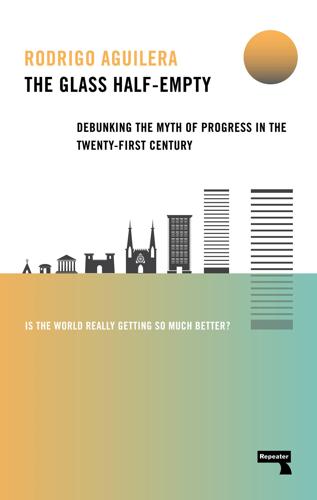
The Glass Half-Empty: Debunking the Myth of Progress in the Twenty-First Century
by
Rodrigo Aguilera
Published 10 Mar 2020
Bush”, Gallup, https://news.gallup.com/poll/116500/presidential-approval-ratings-george-bush.aspx 36 “Election 2016: Exit Polls”, New York Times, 8 Nov. 2016, https://www.nytimes.com/interactive/2016/11/08/us/politics/election-exit-polls.html 37 Antonucci, L., Horvath, L., and Krouwel, A., “Brexit Was Not the Voice of the Working Class Nor of the Uneducated – It Was of the Squeezed Middle”, LSE Blogs - British Politics and Policy, 13 Oct. 2017, https://blogs.lse.ac.uk/politicsandpolicy/brexit-and-the-squeezed-middle/ 38 “2019 Global Emotions Report”, Gallup, 2018, https://www.gallup.com/analytics/248906/gallup-global-emotions-report-2019.aspx 39 Salmela, M. and von Scheve, C., “Emotional Roots of Right-Wing Populism”, Social Science Information, 12 Oct. 2017, https://doi.org/10.1177%2F0539018417734419 40 Helliwell, J.F., Huang, H., and Wang, S., “Changing World Happiness”, in Helliwell, J.F., Layard, R., and Sachs, J.D.
…
The correlation between life satisfaction and income is also problematic since it would follow that there is an incentive for satisfied people to vote for radical candidates if they have less to lose financially but more to lose with intangible assets like their status on socio-economic and cultural hierarchies. This may explain why Trump obtained higher shares of support among higher-income voters than Clinton did,36 and why studies have shown that the leave vote in Britain was more prominent among the so-called “squeezed-middle” class than the working class, which goes contrary to popular myth of poorer voters shifting to the far right. One post-Brexit study referred to this group of people as the “intermediate class”, with many characteristics of the middle class but facing a unique set of socio-economic threats: This intermediate class refers to “ordinary” families with intermediate or upper-intermediate levels of education, stable jobs, and median levels of income, but which nonetheless face an increasing challenge in maintaining their life-style.
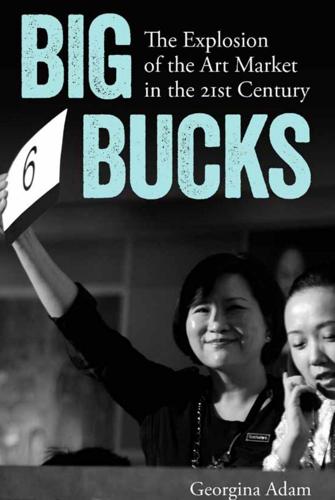
Big Bucks: The Explosion of the Art Market in the 21st Century
by
Georgina Adam
Published 14 Jun 2014
That way you reinforce your programme from both ends.’ But while the biggest galleries, with their huge financial clout, and the smallest galleries, with their light structures and low overheads, are best placed to survive in today’s market, this is not the case for the mid-sized galleries. They are classically the ‘squeezed middle’, whose costs are not as compressible as in the smallest structures, and who need to maintain a presence at art fairs in order to retain their endorsement and, indeed, their artists. Their problem is classically the migration of artists – or poaching – towards the bigger, better established galleries.
…
Until now, we have mainly focused on the upper end of the art market, and this is the part that has produced the most heat in the twenty-first century. But with the emergence of the ‘mega-galleries’ and an increasingly polarised world as far as wealth is concerned68 – the two phenomena are intertwined – there is increasing pressure on the ‘squeezed middle market’: in a panel at the Institute of Contemporary Art (ICA) in London, February 2013, ICA director Gregor Muir noted the erosion of buying by upper-middle-class professionals who come from academic, medical or accounting backgrounds. And in an interview for The Art Newspaper, Brian Washburn of New York’s Washburn gallery, said: ‘People are buying the young, hot artists for speculation or the big established names from a certain period.
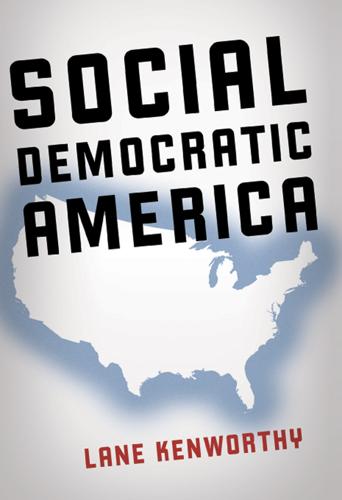
Social Democratic America
by
Lane Kenworthy
Published 3 Jan 2014
“Two and a Half Cheers for Education.” Pp. 111–123 in After the Third Way: The Future of Social Democracy in Europe. Edited by Olaf Cramme and Patrick Diamond. A Policy Network book. London: I.B. Tauris. ———. 2013a. “Rising Incomes and Modest Inequality: The High-Employment Route.” Pp. 31–43 in The Squeezed Middle: The Pressure on Ordinary Workers in America and Britain. Edited by Sophia Parker. Bristol, UK: Policy Press. ———. 2013b. “What Do Americans Want?” Unpublished paper. ———. 2013c. “Why Do Some Rich Countries Grow Faster Than Others?” Unpublished paper. Kenworthy, Lane, Sondra Barringer, Daniel Duerr, and Garrett Andrew Schneider. 2007.
…
Mishel, Lawrence, Josh Bivens, Elise Gould, and Heidi Shierholz. 2012. The State of Working America. 12th ed. Washington, DC: Economic Policy Institute. Mishel, Lawrence and Heidi Shierholz. 2013. “A Lost Decade, Not a Burst Bubble: The Declining Living Standards of Middle-Class Households in the US and Britain.” Pp. 17–30 in The Squeezed Middle: The Pressure on Ordinary Workers in America and Britain. Edited by Sophia Parker. Bristol, UK: Policy Press. Moffitt, Robert A. 1981. “The Negative Income Tax: Would It Discourage Work?” Monthly Labor Review, April: 23–27. Moffitt, Robert A. and John Karl Scholz. 2009. “Trends in the Level and Distribution of Income Support.”
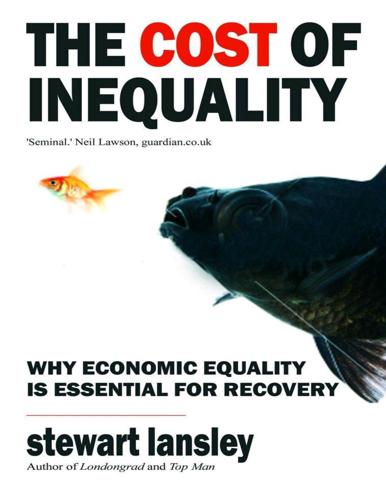
The Cost of Inequality: Why Economic Equality Is Essential for Recovery
by
Stewart Lansley
Published 19 Jan 2012
Hills, Inequality and the State, OUP, 2004, p 79-83. 85 See, for example, W Hutton, Them and Us, Little Brown, 2010. 3 THE VANISHING MIDDLE In his first speech after defeating his better-known brother to become Labour’s new leader, Ed Miliband made a pitch for the votes of what he called the ‘squeezed middle’. There is nothing especially new about Britain’s political leaders attempting to woo the central layer of British society. Mrs Thatcher won the 1979 election by spotting the importance of the aspirational working class, targeting what she called ‘middle England’—those in the middle of the class and income structure—with a promise of better opportunities.
…
I would also like to thank members of the Economic and Social Affairs Unit at the TUC for many discussions around these issues and especially to Adam Lent, the former head of the Unit, for commissioning research on the economic impact of the super-rich, on the impact of wider economic trends on low and middle income households in Britain and on a largely forgotten group in Britain—‘the squeezed middle’. I have drawn on this work, published in a series of TUC economic pamphlets in 2008 and 2009, and on other articles I had published in those years. The latter suggested, tentatively, that the fundamental cause of the 2008 crash lay, not in mainstream explanations, but in a growing level of economic fragility and turbulence that had their roots in the way the fruits of economic growth had become so unevenly shared.
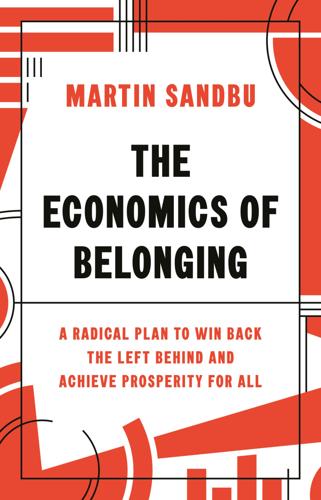
The Economics of Belonging: A Radical Plan to Win Back the Left Behind and Achieve Prosperity for All
by
Martin Sandbu
Published 15 Jun 2020
Another reason could be that the inequalities I have discussed make people feel vulnerable to “slipping” down the social scale in an uncertain future, despite their own currently comfortable but (perceived to be) precarious economic situation. In the United States, for example, the Trump vote was higher in places where the local economy had a high share of the kind of routine jobs experts think are more likely to be automated in the future.13 Elsewhere, too, the anxiety of a “squeezed middle” has seemed politically potent.14 But this clearly economic motivation would be blurred in a study that compared people’s current incomes with their political choices. These reflections suggest an answer to the third objection to the economic story—namely, that illiberal values and antipathy to the Western social model are inherently irreducible and cannot be explained away by economic motivations.
…
See also Sascha Becker, Thiemo Fetzer, and Dennis Novy, “The Fundamental Factors behind the Brexit Vote,” VoxEU, 31 October 2016, https://voxeu.org/article/fundamental-factors-behind-brexit-vote, where the authors establish many of the patterns described in this chapter. 13. Jed Kolko, “Trump Was Stronger Where the Economy Is Weaker,” FiveThirtyEight, 10 November 2016, https://fivethirtyeight.com/features/trump-was-stronger-where-the-economy-is-weaker/. 14. Delphine Strauss, “Squeezed Middle Faces Growing Risk of Poverty,” Financial Times, 15 June 2018, https://www.ft.com/content/13fe209e-707f-11e8-852d-d8b934ff5ffa. 15. Christian Dustmann, Barry Eichengreen, Sebastian Otten, André Sapir, Guido Tabellini, and Gylfi Zoega, “Populism and Trust in Europe,” VoxEU, 23 August 2017, https://voxeu.org/article/populism-and-trust-europe. 16.
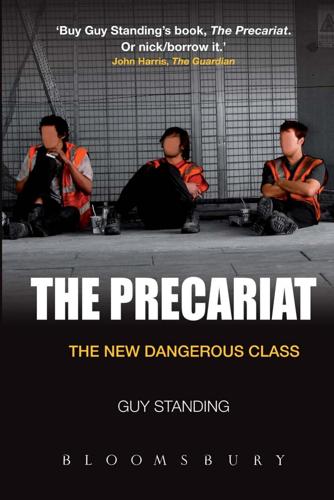
The Precariat: The New Dangerous Class
by
Guy Standing
Published 27 Feb 2011
The global market economy may eventually raise living standards everywhere – even its critics should wish that – but it is surely only ideologues who can deny that it has brought economic insecurity to many, many millions. The precariat is in the front ranks, but it has yet to find the Voice to bring its agenda to the fore. It is not ‘the squeezed middle’ or an ‘underclass’ or ‘the lower working class’. It has a distinctive bundle of insecurities and will have an equally distinctive set of demands. In the early stages of writing the book, a presentation of the themes was made to what turned out to be a largely ageing group of academics of a social democratic persuasion.
…
Alexander claimed the difference between this stance and the government’s was that the government had adopted the American model of cutting benefits without ensuring a job was available. He was responding to criticism from a former general secretary of the Labour Party that the party appeared to side with the ‘feckless poor’ against ‘the hard-working squeezed middle’. But it might be more principled politics to think through the policy in terms of what it means for the precariat. Workfare advocates place labour above work. Pushing everybody into jobs leads to the Soviet trap: Eventually the unemployed are dubbed parasitic while resentful workers lessen their effort, which led to the wry joke, ‘They pretend to pay us, we pretend to work’.
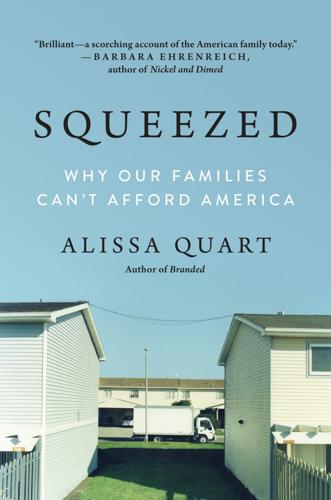
Squeezed: Why Our Families Can't Afford America
by
Alissa Quart
Published 25 Jun 2018
As he was busy, he cheerfully directed me to an essay by David Plouffe, on the site Medium, that echoes Hill’s assessment of Uber’s PR strategy but gives it a civic-minded tint. Plouffe was Barack Obama’s campaign manager and an Uber senior vice president until 2015, when the company decided to emphasize that it was coming to the aid of America’s squeezed middle class. The Uber platform, Plouffe writes, serves as the “pay raise they [the drivers] have not received in their other jobs.” Of course, working additional hours is not a “pay raise”—like so many typical statements of the Master Gigsters (my own mash-up of “gig” and “gangster”), Plouffe’s rhetoric was infuriatingly, and giddily, Orwellian.
…
Boston and its surrounding areas had become too expensive for any of them to easily purchase homes, even though they were all working professionals at the time, with bachelor’s and master’s degrees. “We were middle-class on paper but we didn’t have financial backing of our families because they didn’t have enough time in the country to accumulate wealth—no one in our extended families could give us $25,000,” said Sophia. This was, of course, a pattern I saw over and over again for the squeezed middle-class parents of color I interviewed, whether immigrants or not. Their families of origin did not have as much savings as most of the white middle-class parents. They were less likely to own property, in part due to far less intergenerational family wealth. Those whose parents did own real estate may have possessed homes in black neighborhoods that didn’t gain as much value as white ones.
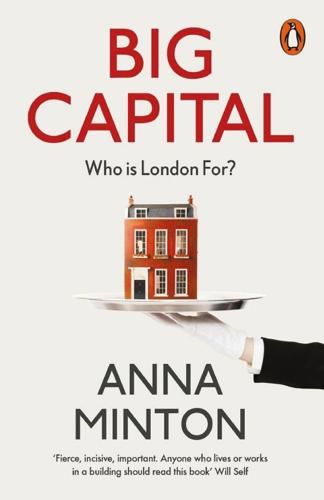
Big Capital: Who Is London For?
by
Anna Minton
Published 31 May 2017
‘We might be able to get a semi with a garden but the kids would not be in the catchment area for their schools, there’s a massive commute and you lose all your networks.’ Jan is paid far above the average salary and her partner, who is a teaching assistant, also has a full-time job. But after the cost of childcare is deducted, they have nothing left to spare – ‘it’s second-hand clothes and no holidays. It’s middle-class poverty – they call it “the squeezed middle” but it’s poverty. It impacts on a whole range of things you can’t begin to anticipate,’ she said. To cap it all, on the day we met she’d had a terrible journey into work with cancelled trains and her Oyster card charging her an extra £20 by mistake, which she simply didn’t have. ‘I just stood on the platform crying.
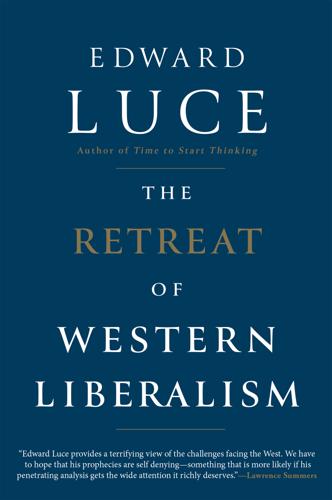
The Retreat of Western Liberalism
by
Edward Luce
Published 20 Apr 2017
‘It is an open question whether this is a market correction in democracy, or a global depression,’ Francis Fukuyama tells me.4 The backlash of the West’s middle classes, who are the biggest losers in a global economy that has been rapidly converging, but still has decades to go, has been brewing since the early 1990s. In Britain we call them the ‘left-behinds’. In France, they are the ‘couches moyennes’. In America, they are the ‘squeezed middle’. A better term is the ‘precariat’ – those whose lives are dominated by economic insecurity. Their weight of numbers is growing. So, too, is their impatience. Barrington Moore, the American sociologist, famously said, ‘No bourgeoisie, no democracy.’ In the coming years we will find out if he was right.
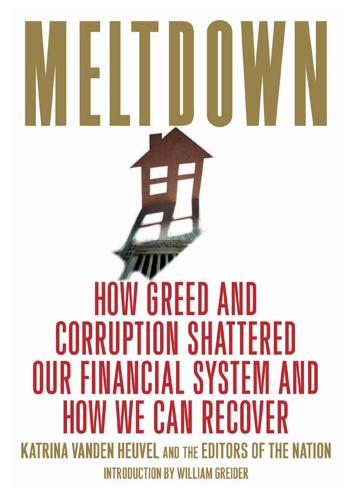
Meltdown: How Greed and Corruption Shattered Our Financial System and How We Can Recover
by
Katrina Vanden Heuvel
and
William Greider
Published 9 Jan 2009
So it’s a big deal when Robert Rubin changes the subject and begins to talk about income inequality as “a deeply troubling fact of American economic life” that threatens the trading system, even the stability of “capitalist, democratic society.” More startling, Rubin now freely acknowledges what the American establishment for many years denied or dismissed as inconsequen-tial—globalization’s role in generating the thirty-year stagnation of U.S. wages, squeezing middle-class families and below, while directing income growth mainly to the upper brackets. A lot of Americans already knew this. Critics of “free trade” have been saying as much for years. But when Bob Rubin says it, his words can move politicians, if not financial markets. Rubin has launched the Hamilton Project, a policy group of like-minded economists and financiers who are developing ameliorative measures to aid the threatened workforce and, he hopes, to create a broader political constituency that will defend the trading system against popular backlash.
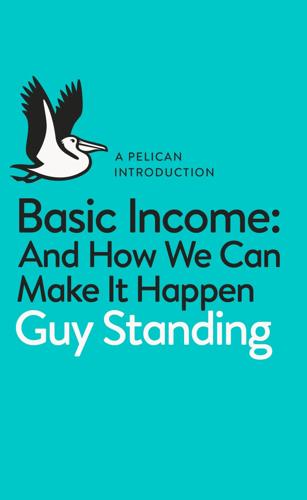
A Pelican Introduction: Basic Income
by
Guy Standing
Published 3 May 2017
There would be more losers at higher income levels – inevitable for a scheme that aims to redistribute resources and reduce inequality – but for them the losses would be manageable (see Figure 7.1). Meanwhile, child poverty would be cut by a third while, according to Torry, the scheme ‘would achieve manageable and useful redistribution from rich to poor, with those households often described as the “squeezed middle” particularly benefiting from the transition’. Using Torry’s model, the Royal Society of Arts (RSA) did its own calculations for a full basic income scheme based on payments equivalent to £71 a week for adults aged 25–64, £143 for adults aged 65+, £82.50 for the first child and £65 for subsequent children aged 0–5, and £56 for children and young people aged 5–24.17 These amounts, which would replace most existing benefits, roughly correspond to existing levels of Jobseeker’s Allowance, the state pension, and child benefit and other help for children available to low-income families.
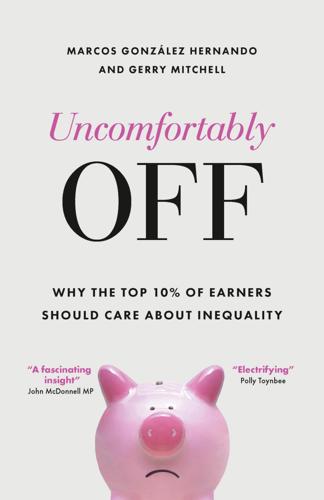
Uncomfortably Off: Why the Top 10% of Earners Should Care About Inequality
by
Marcos González Hernando
and
Gerry Mitchell
Published 23 May 2023
v=nbmQQ13UrMw OBR (Office for Budget Responsibility) (2021) Welfare spending: Pensioner benefits. https://obr.uk/forecasts-in-depth/tax-bytax-spend-by-spend/welfare-spending-pensioner-benefits OECD (Organisation for Economic Co-operation and Development) (2015) In it together: Why less inequality benefits all. Paris: OECD. OECD (2018) A broken social elevator? How to promote social mobility. Paris: OECD. OECD (2019) Under pressure: The squeezed middle class. Paris: OECD. Olson, D. (2022) Line goes up: The problem with NFTs. YouTube. 21 January. www.youtube.com/watch?v=YQ_xWvX1n9g 223 Uncomfortably Off ONS (Office for National Statistics) (2018) Social protection, European comparisons of expenditure: 2015. 19 June. www.ons. gov.uk/peoplepopulationandcommunity/wellbeing/articles/ socialprotectioneuropeancomparisonsofexpenditure/2015 ONS (2020a) Dataset: Ethnicity pay gap reference tables.
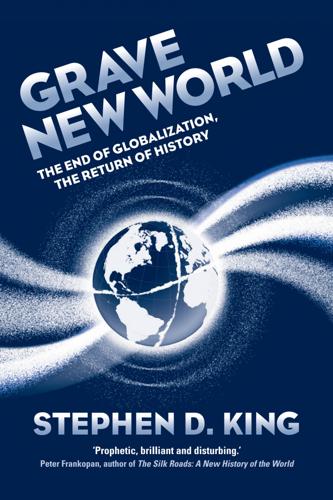
Grave New World: The End of Globalization, the Return of History
by
Stephen D. King
Published 22 May 2017
The construction of new homes in major international cities appears increasingly to benefit those who wish to hedge their investment bets across the globe – even as they leave their property portfolios mostly empty – at the expense of local residents, who find themselves priced out of the market. Shareholders demand that mobile capital should be invested where labour costs are at their lowest, preferring companies to invest in Asia than in Europe or North America. The Western middle class becomes a ‘squeezed middle’: even with a good education, the lack of access to increasingly mobile capital leaves many ‘professional people’ relatively income poor, even if their productivity may, over time, be on the rise. As such, their political ‘voice’ slowly recedes. And evidence from the US strongly suggests, unsurprisingly, that money buys political influence: American senators are far more likely to take seriously the views of the rich than those of anybody else, and are far more likely to ignore the views of the poor altogether.
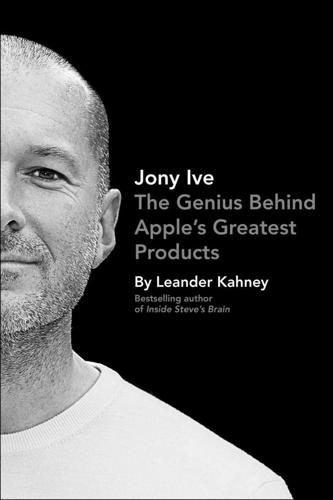
Jony Ive: The Genius Behind Apple's Greatest Products
by
Leander Kahney
Published 14 Nov 2013
Scott Forstall testimony at Apple v. Samsung trial. 11. Apple v. Samsung trial, deposition of Jonathan Ive, 12. Ibid. 13. Ibid. 14. Ibid. 15. Charles Duhigg and Keith Bradsher, “How the U.S. Lost Out on iPhone Work,” New York Times, http://www.nytimes.com/2012/01/22/business/apple-america-and-a-squeezed-middle-class.html, January 21, 2012. 16. Bryan Gardiner, “Glass works: How Corning Created the Ultrathin, Ultrastrong Material of the Future,” Wired.com, http://www.wired.com/wiredscience/2012/09/ff-corning-gorilla-glass/all/, September 24, 2012. 17. Isaacson, Steve Jobs, Kindle edition. 18.
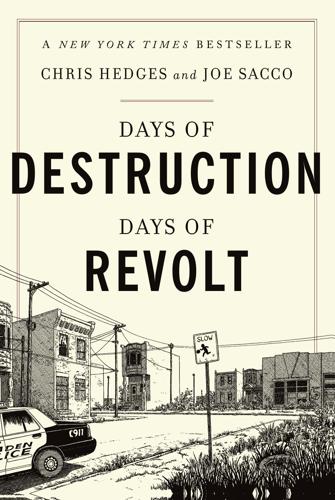
Days of Destruction, Days of Revolt
by
Chris Hedges
and
Joe Sacco
Published 7 Apr 2014
Department of Housing and Urban Development, Office of Community Planning and Development, “The 2011 Point-in-Time Estimates of Homelessness: Supplement to the Annual Homeless Assessment Report December 2011, http://www.abtassociates.com/Reports/2011/The-2011-Point-in-Time-Estimates-of-Homelessness.aspx (accessed 26 Dec. 2011). 8. Charles Duhigg and Keith Bradsher, “How the U.S. Lost Out on iPhone Work,” New York Times, January 21, 2012, http://www.nytimes.com/2012/01/22/business/apple-america-and-a-squeezed-middle-class.html (accessed 23 Aug. 2013). 9. Ibid. 10. Sue Halpern, “Who Was Steve Jobs?” New York Review of Books, January 12, 2012, www.nybooks.com/articles/archives/2012/jan/12/who-was-steve-jobs/?pagination=false (accessed 12 Feb. 2012). 11. Duhigg and Bradsher, “How the U.S. Lost Out on iPhone Work.” 12.
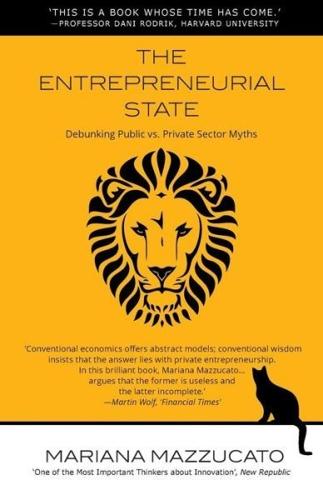
The Entrepreneurial State: Debunking Public vs. Private Sector Myths
by
Mariana Mazzucato
Published 1 Jan 2011
Available online at http://www.bloomberg.com/news/2010-10-21/google-2-4-rate-shows-how-60-billion-u-s-revenue-lost-totax-loopholes.html (accessed 19 July 2012). Duhigg, C. and K. Bradsher. 2012. ‘How the U.S. Lost Out on iPhone Work’. New York Times, ‘The iEconomy Series’, 28 April. Available online at http://www.nytimes.com/2012/01/22/business/apple-america-and-a-squeezed-middle-class.html?_r=1&gwh=CDD8CD36DC4DEF040F857DEB57FA4348 (accessed 21 January 2012). Duhigg, C. and D. Kocieniewski. 2012. ‘How Apple Sidesteps Billions in Taxes’. New York Times, ‘The iEconomy Series’, 28 April. Available online at http://www.nytimes.com/2012/04/29/business/apples-tax-strategy-aims-at-low-taxstates-and-nations.html (accessed 1 July 2012).

The Age of Stagnation: Why Perpetual Growth Is Unattainable and the Global Economy Is in Peril
by
Satyajit Das
Published 9 Feb 2016
Today, a new underclass provides grist for the technology entrepreneurs and investors in the sharing economy. It is desperate piecework labor, the end of middle-class dreams. Postwar society was built on good, well-paid jobs: “The most important model that rolled off the Detroit assembly lines in the twentieth century was the middle class for blue-collar workers.”11 Now the squeezed middle classes are members of the “precariat” or the “precarious proletariat.” The terms originally described Japanese workers without job security, who now make up over 30 percent of the country's workforce as companies cut labor costs. The phenomenon of short-term contract employment is global. Since 2009, the UK has enjoyed strong increases in employment, but the type and quality of jobs have changed.
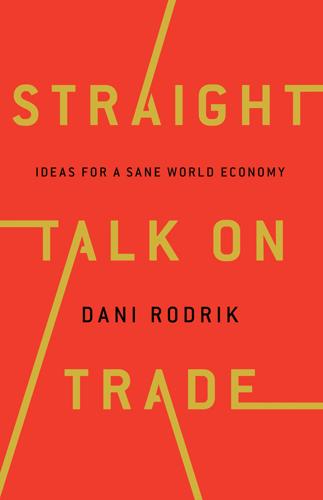
Straight Talk on Trade: Ideas for a Sane World Economy
by
Dani Rodrik
Published 8 Oct 2017
Blum and Avi Goldfarb, “Does the Internet Defy the Law of Gravity?” Journal of International Economics, vol. 70(2), 2006: 384–405. 27. Charles Duhigg and Keith Bradsher, “How the U.S. Lost Out on iPhone Work,” New York Times, January 21, 2012, http://www.nytimes.com/2012/01/22/business/apple-america-and-a-squeezed-middle-class.html?pagewanted=all. 28. Edward Leamer, “A Flat World, a Level Playing Field, a Small World After All, or None of the Above? A Review of Thomas L. Friedman’s The World is Flat,” Journal of Economic Literature, vol. 45(1), 2007: 83–126. 29. Kevin Morgan, “The Exaggerated Death of Geography: Learning, Proximity, and Territorial Innovation Systems,” Journal of Economic Geography, vol. 4, 2004: 3–21. 30.
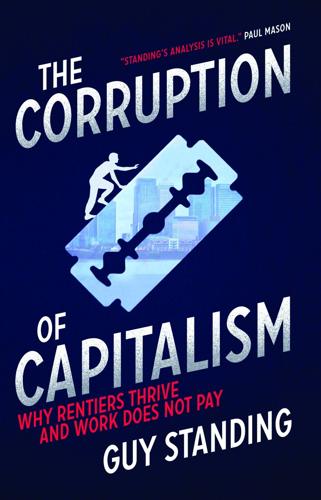
The Corruption of Capitalism: Why Rentiers Thrive and Work Does Not Pay
by
Guy Standing
Published 13 Jul 2016
He shouted, ‘I have thirteen bankers in my office, and they say if you go forward with this you will cause the worst financial crisis since World War II.’11 She backed down, with disastrous consequences. The Third Way was the endgame of twentieth-century social democracy; it had surrendered to finance. ‘Left’ parties everywhere had abandoned traditional values for a crude utilitarianism in trying to appeal to ‘the middle class’, the ‘aspirational middle’ or, in its later guise, ‘the squeezed middle’. In doing so they were competing with the right, which was much more comfortable in that zone. What has happened on the right is equally fascinating. Its old class base also weakened in the early phase of globalisation and the early stages of rentier capitalism. Deindustrialisation meant a dwindling number of industrialists to fund and mobilise support.
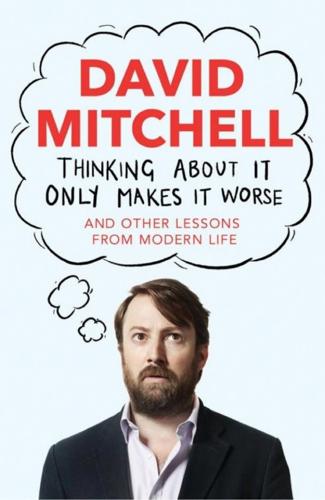
Thinking About It Only Makes It Worse: And Other Lessons From Modern Life
by
David Mitchell
Published 4 Nov 2014
And Farage has even spoken in favour of Britain taking in Syrian refugees. So Ukip is following where Blair and Cameron have gone before: it’s making a play for the middle ground. It’s saying: “We’re just decent normal people who represent the values of other decent normal people.” “Hard-working families”, “alarm-clock Britain”, “the squeezed middle” – like Satan, they have many names, and all politicians want to appeal to them. “We’re for you, you noble, struggling, put-upon, good-hearted societal contributors! Vote for us, we’ve got your back!” say all the parties. Which raises the question: who is there for the nasty to vote for? If the Tories aren’t the nasty party any more, and now Ukip isn’t either; and if Labour is no longer the party of benefit cheats and power-hungry trade unions, but is dedicated to helping ordinary working families, whom the Tories are also dedicated to helping rather than fat-cat bankers and landed aristocrats; and if Ukip is no friend of racists, homophobes, sexists and Christian fundamentalists but welcomes women, students and Syrians; and everyone had forgotten the BNP even existed till Nick Griffin went bankrupt to give us a New Year laugh – then who will benefit electorally from the nasty demographic?
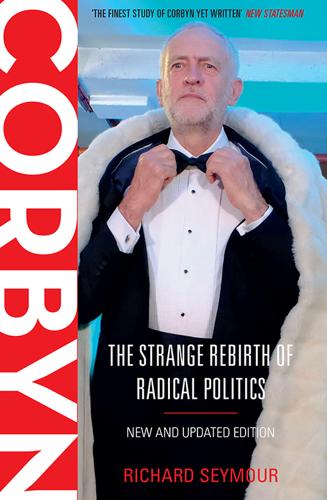
Corbyn
by
Richard Seymour
And indeed, as pernicious as the policy was the rhetoric, which was culpably aligned with that of the populist Right – just as Labour sought to (gently) bash the bankers and call for ‘responsible capitalism’, so it sought to (harshly) incriminate the poorest as yet another usurping pressure on the ‘squeezed middle’.70 The British nationalism that Miliband sought to mobilise had another purpose, however. One of the reasons that New Labour had so fanatically pursued its ‘Britishness’ agenda was to ward off the menace of Scottish independence. The devolved institutions that New Labour had itself created, the better to forestall such questions, had become a terrain in which the SNP consistently outmanoeuvred and out-classed their Labour rivals.
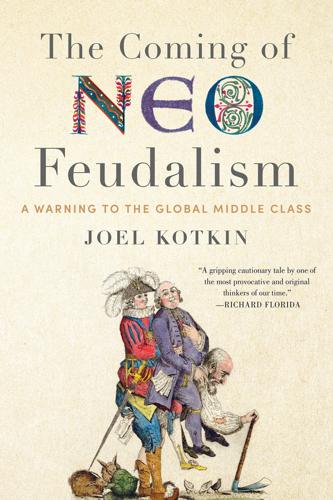
The Coming of Neo-Feudalism: A Warning to the Global Middle Class
by
Joel Kotkin
Published 11 May 2020
Wiemers, “The decline in lifetime earnings mobility in the U.S.: Evidence from survey-linked administrative data,” Washington Center for Equitable Growth, September 7, 2016, https://equitablegrowth.org/working-papers/the-decline-in-lifetime-earnings-mobility-in-the-u-s-evidence-from-survey-linked-administrative-data/. 19 OECD, Under Pressure: The Squeezed Middle Class (Paris: OECD Publishing, 2019), 13, https://doi.org/10.1787/689afed1-en. 20 John W. Schoen, “Millennials will be renting for a lot longer,” CNBC, September 9, 2016, https://www.cnbc.com/2016/09/09/millennials-will-be-renting-for-a-lot-longer.html; Leith van Onselen, “The sad death of Australian home ownership,” Macrobusiness, August 7, 2018, https://www.macrobusiness.com.au/2018/08/sad-death-australian-home-ownership/; Richard Partington, “Home ownership among young adults has ‘collapsed’, study finds,” Guardian, February 16, 2018, https://www.theguardian.com/money/2018/feb/16/homeownership-among-young-adults-collapsed-institute-fiscal-studies; Joel Kotkin, “The High Cost of a Home Is Turning American Millennials Into the New Serfs,” Daily Beast, April 11, 2017, https://www.thedailybeast.com/the-high-cost-of-a-home-is-turning-american-millennials-into-the-new-serfs. 21 Robert E.
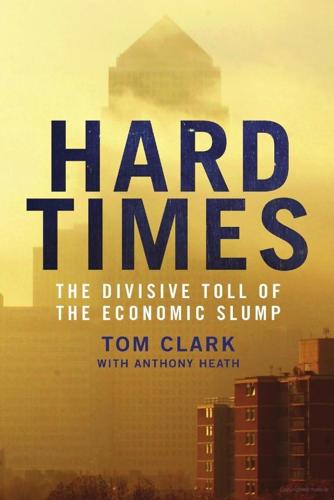
Hard Times: The Divisive Toll of the Economic Slump
by
Tom Clark
and
Anthony Heath
Published 23 Jun 2014
In 1973–2009 productivity grew by 92.6%, while average hourly wages grew by just 4.3% excluding benefits, or by a marginally less modest 10.3% including such perks. See Larry Mishel and Heidi Shierholz, ‘A lost decade, not a burst bubble: The declining living standards of middle-class households in the US and Britain’, in Sophia Parker (ed.), The Squeezed Middle: The pressure on ordinary workers in America and Britain, Policy Press, Bristol, 2013, pp. 22–3, Figure 1.1.4. 21. Weekly average earnings figures from the Annual Survey of Hours and Earnings up to 2011 (collated and kindly supplied by Resolution Foundation; numbers have been annualised); Resolution Foundation projections based on Office for Budget Responsibility forecasts thereafter. 22.
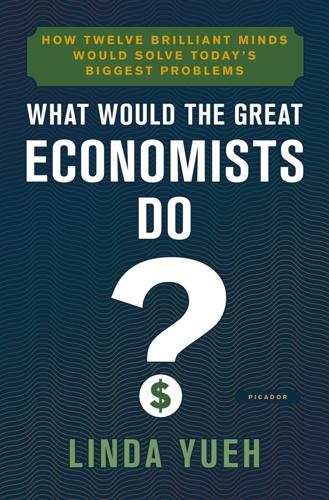
What Would the Great Economists Do?: How Twelve Brilliant Minds Would Solve Today's Biggest Problems
by
Linda Yueh
Published 4 Jun 2018
Although not always so stark, inequality is a problem for many nations, including Britain, where economic disparity has contributed to a backlash against globalization and even against capitalism itself. The term ‘inclusive growth’, which refers to economic growth that benefits everyone in a society, has been touted in the United Kingdom. It’s also been heard in America, which has suffered from a ‘squeezed’ middle class and stagnant wages. Though the rise in income inequality can be partly traced to globalization, that does not suggest the remedy is to be found in trade policy alone. As detailed in the David Ricardo chapter, there are certainly distributional effects from trade – some groups will win, others will lose – even if the overall economy gains.
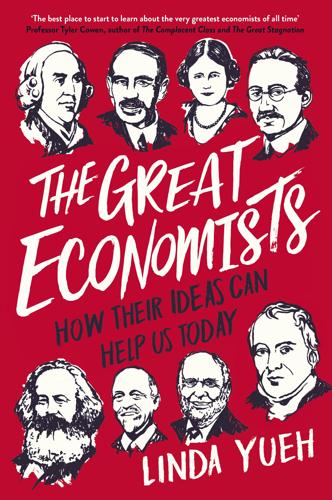
The Great Economists: How Their Ideas Can Help Us Today
by
Linda Yueh
Published 15 Mar 2018
Although not always so stark, inequality is a problem for many nations, including Britain, where economic disparity has contributed to a backlash against globalization and even against capitalism itself. The term ‘inclusive growth’, which refers to economic growth that benefits everyone in a society, has been touted in the United Kingdom. It’s also been heard in America, which has suffered from a ‘squeezed’ middle class and stagnant wages. Though the rise in income inequality can be partly traced to globalization, that does not suggest the remedy is to be found in trade policy alone. As detailed in the David Ricardo chapter, there are certainly distributional effects from trade – some groups will win, others will lose – even if the overall economy gains.
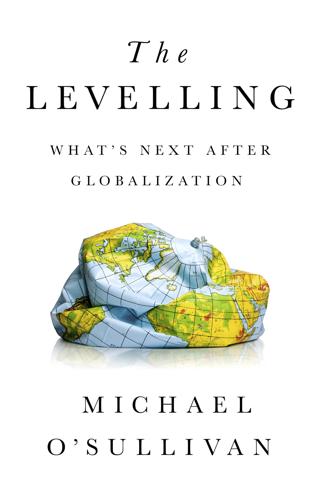
The Levelling: What’s Next After Globalization
by
Michael O’sullivan
Published 28 May 2019
According to the Survey of Consumer Finance, which is produced every three years by the Federal Reserve to shed light on the quality of household balance sheets, 30 percent of households have no wealth, and the vast majority of wealth is held by those over forty-five years of age. Several Pew studies reflect this also. The report “American Middle Class Is Losing Ground” highlights the “squeezed middle” and reports that the number of people considered to be middle class (roughly 120 million people) is now outnumbered by the combined lower and upper classes and that, importantly, the share of total income of the middle class has fallen from 62 percent in 1970 to 43 percent in 2015.22 In fact, America’s wealthy middle class (close to 92 million people, with net wealth of USD 50,000 to USD 500,000) is now surpassed by China’s middle class (over 102 million people, who, in relative terms, have wealth of USD 20,000 to USD 200,000).23 The trend toward greater inequality is clear.
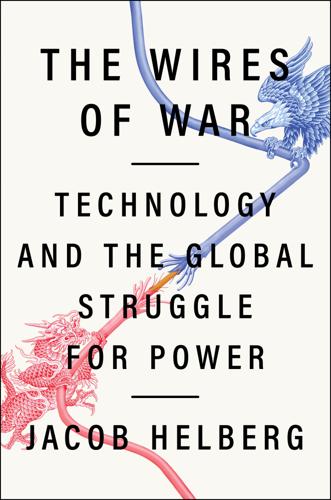
The Wires of War: Technology and the Global Struggle for Power
by
Jacob Helberg
Published 11 Oct 2021
Hillman, “The Imperial Overreach of China’s Belt and Road Initiative,” Wall Street Journal, October 1, 2020, https://www.wsj.com/articles/the-imperial-overreach-of-chinas-belt-and-road-initiative-11601558851. 30 Chatzky and McBride, “China’s Massive Belt and Road Initiative.” 31 “The Digital Silk Road: Expanding China’s Digital Footprint,” Eurasia Group, April 8, 2020, https://www.eurasiagroup.net/files/upload/Digital-Silk-Road-Expanding-China-Digital-Footprint.pdf. 32 Maria Abi-Habib, “China’s ‘Belt and Road’ Plan in Pakistan Takes a Military Turn,” New York Times, December 19, 2018, https://www.nytimes.com/2018/12/19/world/asia/pakistan-china-belt-road-military.html. 33 Charles Duhigg and Keith Bradsher, “How the U.S. Lost Out on iPhone Work,” New York Times, January 21, 2012, https://www.nytimes.com/2012/01/22/business/apple-america-and-a-squeezed-middle-class.html?referringSource=articleShare. 34 Duhigg and Bradsher, “How the U.S. Lost Out on iPhone Work.” 35 Reade Pickert, “Manufacturing Is Now Smallest Share of U.S. Economy in 72 Years,” Bloomberg, October 29, 2019, https://www.bloomberg.com/news/articles/2019-10-29/manufacturing-is-now-smallest-share-of-u-s-economy-in-72-years. 36 Thomas C.
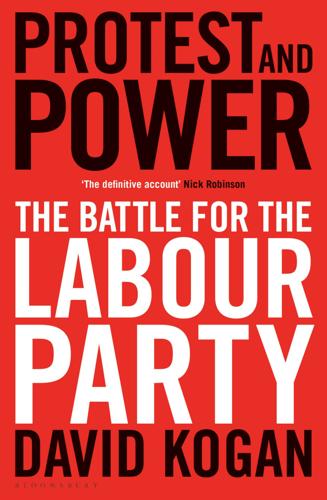
Protest and Power: The Battle for the Labour Party
by
David Kogan
Published 17 Apr 2019
It proposed bringing back the 50p tax rate for the income tax band over £150,000 and also proposed a new British investment bank. The essential trade-off was to accept the need for short-term cuts but promise longer-term investment and rebuilding of the infrastructure. After launching twenty-two policy reviews in 2010, they had settled on ‘the squeezed middle’ as a target group. It was all too secondary against the clarity of the Conservatives cuts. Labour’s position was to agree the need for cuts, but phased over a longer term. This stance also meant that a public sector wage freeze of 1 per cent and other cuts that looked like austerity would have to be accepted to appear to be responsible in government, just as Gordon Brown had done in 1997 in accepting the Conservative’s spending plans.
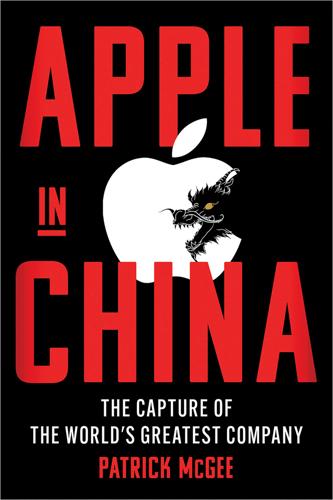
Apple in China: The Capture of the World's Greatest Company
by
Patrick McGee
Published 13 May 2025
“Not Really ‘Made in China’ ”: Andrew Batson, “Not Really ‘Made in China,’ ” Wall Street Journal, December 15, 2010, https://www.wsj.com/articles/SB10001424052748704828104576021142902413796. roused 8,000 workers: Charles Duhigg and Keith Bradsher, “How the U.S. Lost Out on iPhone Work,” New York Times, January 21, 2012, https://www.nytimes.com/2012/01/22/business/apple-america-and-a-squeezed-middle-class.html. Chapter 19: The Apple Shock Years before Uber: I’m riffing on a viral quote from Tom Goodwin, “The Battle Is for the Customer Interface,” TechCrunch, March 3, 2015, https://techcrunch.com/2015/03/03/in-the-age-of-disintermediation-the-battle-is-all-for-the-customer-interface/.
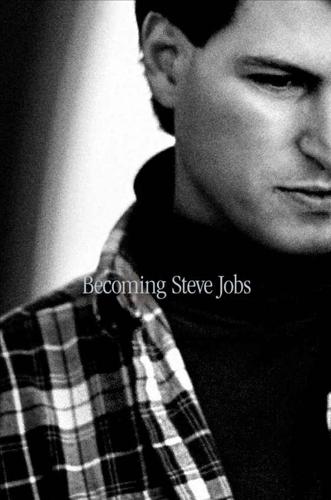
Becoming Steve Jobs: The Evolution of a Reckless Upstart Into a Visionary Leader
by
Brent Schlender
and
Rick Tetzeli
Published 24 Mar 2015
Department of Justice regarding the antitrust complaint against Apple, Adobe, Google, Intel, Intuit, and Pixar for conspiring to prevent competition for the hiring of technical employees, http://www.justice.gov/atr/cases/f262600/262654.pdf, and the complaint against Apple and several book publishers for conspiring to fix prices of ebooks, http://www.justice.gov/atr/cases/f299200/299275.pdf; “Thoughts on Flash,” an open letter from Steve Jobs explaining his reasoning for not allowing Adobe Corp.’s Flash media player software on the Apple iPhone, https://www.apple.com/hotnews/thoughts-on-flash/; Apple Inc.’s archive of news releases for information about the company’s litigation against Samsung, which for many years was the leading maker of smartphones that used Google’s Android operating system; “How the U.S. Lost Out on iPhone Work,” by Charles Duhigg and Keith Bradsher, published in the New York Times on January 21, 2012, http://www.nytimes.com/2012/01/22/business/apple-america-and-a-squeezed-middle-class.html; “In China, Human Costs Are Built into an iPad,” by Charles Duhigg and David Barboza, published in the New York Times on January 25, 2012, http://www.nytimes.com/2012/01/26/business/ieconomy-apples-ipad-and-the-human-costs-for-workers-in-china.html; “How Apple Sidesteps Billions in Taxes,” by Charles Duhigg and David Kocieniewski, published in the New York Times on April 28, 2012, http://www.nytimes.com/2012/04/29/business/apples-tax-strategy-aims-at-low-tax-states-and-nations.html; “Apple’s Retail Army, Long on Loyalty but Short on Pay,” by David Segal, published in the New York Times on June 23, 2012, http://www.nytimes.com/2012/06/24/business/apple-store-workers-loyal-but-short-on-pay.html.
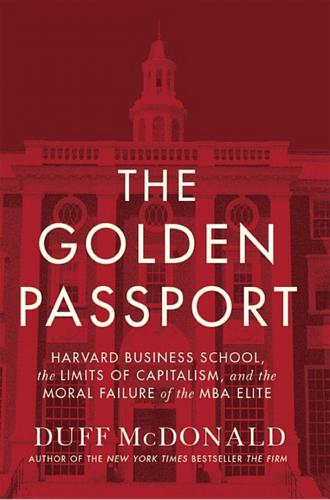
The Golden Passport: Harvard Business School, the Limits of Capitalism, and the Moral Failure of the MBA Elite
by
Duff McDonald
Published 24 Apr 2017
Chapter 61: Nitin Nohria For President 1Wolfgang Amann, Michael Pirson, Claus Dierksmeier, Ernst Von Kimakowitz, and Heiko Spitzeck, Business Schools Under Fire: Humanistic Management Education as the Way Forward (Basingstoke, England: Palgrave Macmillan, 2011), p. 428. 2“Speed Dial: Nitin Nohria,” BloombergView, accessed January 31, 2016, http://www.bloomberg.com/bw/magazine/content/10_20/b4178022137507.htm. 3“Think Twice,” Economist, accessed January 30, 2016, http://www.economist.com/whichmba/think-twice. 4Dennis A. Gioia, “Business Education’s Role in the Crisis of Corporate Confidence,” Academy of Management Executive (1993–2005) 16, no. 3 (August 1, 2002): 142–44. 5Charles Duhigg and Keith Bradsher, “Apple, America, and a Squeezed Middle Class,” New York Times, January 21, 2012, p. A-1. 6http://content.time.com/time/magazine/article/0,9171,2105976,00.html. 7Jerry Useem, “Business School, Disrupted,” New York Times, May 31, 2014, http://www.nytimes.com/2014/06/01/business/business-school-disrupted.html. 8Matt Symonds, “Business School’s Biggest Enemy Takes on Harvard,” Bloomberg, January 14, 2015, accessed June 23, 2015, http://www.bloomberg.com/news/articles/2015-01-14/business-educations-loudest-enemy-takes-on-harvard. 9http://poetsandquants.com/2015/01/28/revealed-where-mba-dual-admits-go/2/.